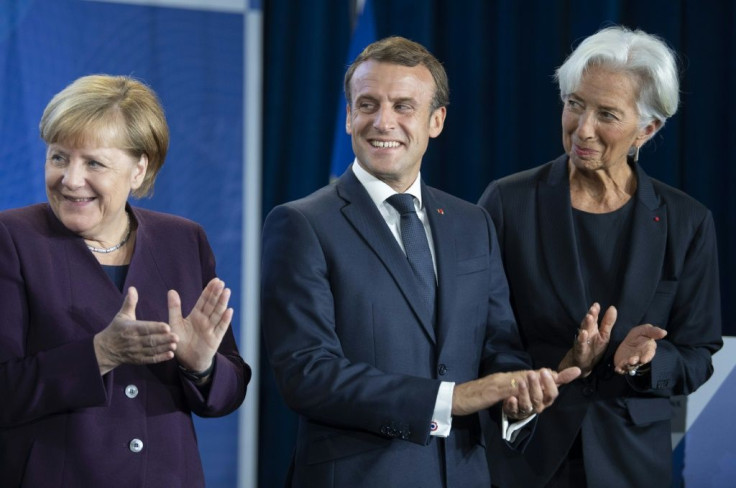New ECB Chief Lagarde Criticises Germany For Low Spending

Incoming European Central Bank chief Christine Lagarde on Wednesday took aim at Germany and other thrifty eurozone members running budgetary surpluses, saying they should increase their spending to shore up slowing growth.
Lagarde told France's RTL radio that whereas eurozone members had successfully coordinated their fiscal policies to save the bloc during the 2008-2009 sovereign debt crisis, "since then the countries which have budgetary space have not really made the necessary efforts."
She argued that "countries with chronic budget surpluses like the Netherlands and Germany", needed to loosen their purse strings to redress the "imbalances" in bloc, by investing more in infrastructure, education and innovation.
The comments are a possible indication of the assertive stance that France's Lagarde, a hugely respected figure who was IMF chief from 2011-2019 but has no previous central banking experience, plans to take in the key job.
For the past five years, Germany, Europe's biggest economy, has consistently posted budget surpluses, testament to the strict fiscal discipline of Chancellor Angela Merkel's government.
But with forecasts pointing to the country entering a recession in the third quarter, the government is facing increasing calls to spend more on investments or approve tax cuts to support the economy.
Germany's large budget and trade surpluses has for years been a bone of contention between Berlin and Paris, with France regularly calling on Germany to invest more of its spare cash.
"What's the point of having public accounts perfectly in order... if your European neighbours can't benefit from your growth and economic dynamism?," French Finance Minister Bruno Le Maire argued last month.
The International Monetary Fund (IMF) under Lagarde regularly prodded Germany to reduce its budget surplus to boost growth and wages.
Eurozone budget
So far German officials have rebuffed calls for fiscal stimulus, saying the government is already spending heavily.
Lagarde, who will take over from outgoing ECB head Mario Draghi on Friday, pressed the case for greater solidarity among the 19 countries that share the euro.
"We share a currency but we're not sharing much in terms of budgetary policy at the moment," she said, adding that it was "regrettable" that the eurozone area did not yet have its own budget.
Getting eurozone members to agree on a shared budget has been one of French President Emmanuel Macron's biggest European battles.
After his election in 2017 Macron unveiled proposals for ambitious EU reforms, including a eurozone budget of several hundred billion euros.
Eurozone finance ministers earlier this month eventually agreed on the basic terms of a tiny budget that fell far short of his aims.
Inspired by the bailout programmes for Greece, Portugal and Ireland, the 17-billion-euro tool only helps governments that deliver politically difficult reforms, such as loosening hiring and firing rules, slashing pensions or privatising state companies.
It has yet to be approved by eurozone leaders.
© Copyright AFP {{Year}}. All rights reserved.



















